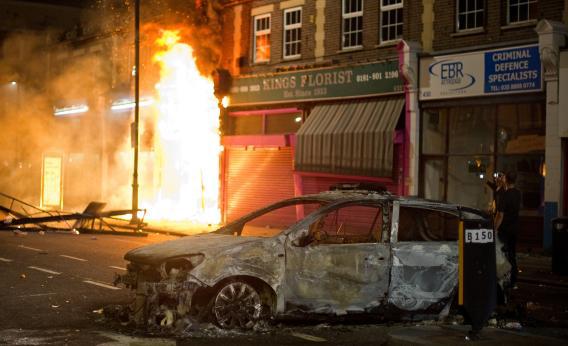In the wake of the August unrest and looting in London, IEEE Spectrum asks how technology will change reaction to riots in the future. Law enforcement attempted to use facial-recognition software and other tech to track down the summer’s perpetrators, but Willie D. Jones writes that “they found traditional investigative techniques to be much more fruitful than software,” because bad lighting, plus hoods and scarves, made it difficult to make out rioters’ faces. However, such technology is virtually guaranteed to improve of the coming years, so future rioters had better beware. In addition to facial recognition, future surveillance technology may allow for authorities to search their video databases for particular actions—say, someone smashing a storefront window—to identify crimes without a human having to watch every second of footage. Of course, the wise rioter will prepare himself: The hooded sweatshirts that foiled the facial-recognition programs in August came into fashion among the U.K.’s less law-abiding citizens in response to the rise of closed-circuit surveillance cameras.
IEEE Spectrum’s Jones displays some remarkable restraint in his piece: He manages to quote Dr. James Orwell, who is “developing recognition and tracking systems,” without making the obvious joke about the researcher’s last name. I tried, but I can’t share his self-control. While it’s not quite a traditional aptronym (in which one’s name and profession seemingly match, like a neurologist named Henry Head), it’s still pretty amazing: If your last name were Orwell, would you want to go into the Big Brother business?
Read more from IEEE Spectrum.
